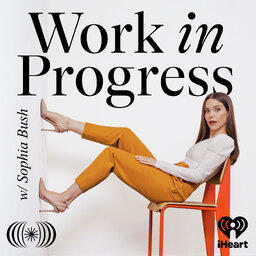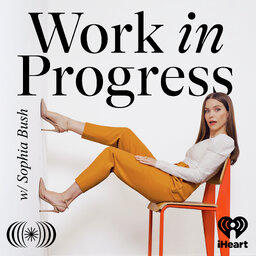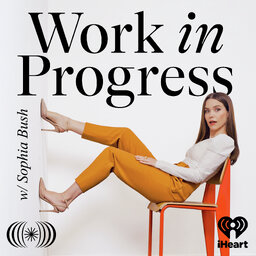Backstage Capital's Arlan Hamilton is the only black, queer woman to have built a venture capital from scratch. She joins Sophia on "Work In Progress" to discuss her path to success, her amazing mother, how she's changing entrepreneurship, and her new book, "It's About Damn Time: How to Turn Being Underestimated Into Your Greatest Advantage."
Executive Producers: Sophia Bush & Sim Sarna
Supervising Producer: Allison Bresnick
Associate Producer: Caitlin Lee
Editors: Josh Windisch and Matt Sasaki
Music written by Jack Garratt and produced by Mark Foster
Artwork by Kimi Selfridge.
This show is brought to you by Brilliant Anatomy.
In 1 playlist(s)
Work in Progress with Sophia Bush
Work in Progress with Sophia Bush features frank, funny, personal, professional, and sometimes even …Social links
Follow podcast
Recent clips

Work in Progress: Mika Brzezinski
1:01:11

Work In Progress: Sophia answers fan questions
23:52

Work in Progress: Rory Uphold
1:07:05
 Work in Progress with Sophia Bush
Work in Progress with Sophia Bush